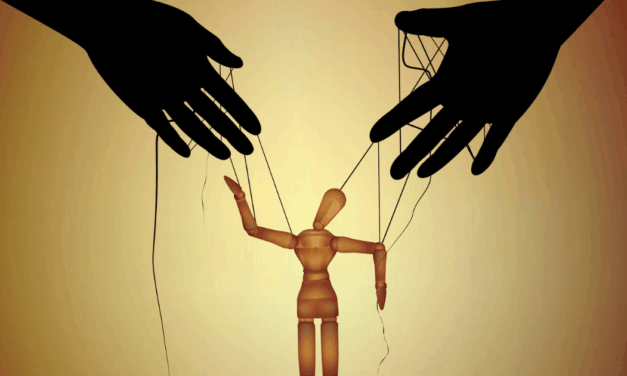Listen to this article (23:15 min)
This article first appeared in the Christian Research Journal, volume 46, number 1/2 (2023).
For further information or to support the Christian Research Journal please click here.
When you support the Journal, you join the team and help provide the resources at equip.org that minister to people worldwide. These resources include our ever-growing database of over 2,000 articles, as well as our free Postmodern Realities podcast.
Another way you can support our online articles is by leaving us a tip. A tip is just a small amount, like $3, $5, or $10, which is the cost of a latte, lunch out, or coffee drink. To leave a tip, click here
“I’m sorry,” Dylan Mulvaney interrupts Drew Barrymore, “I just realized that I’m sitting on the floor with Drew…this is crazy!” He turns, simpering to the audience and fake laughs.
“Thank you so much for joining me on the floor,” Barrymore, gracious as ever, leaves off whatever she had been trying to say, “the floor always feels safer.”
“It feels nice,” Mulvaney nods, and the clip cuts off as the audience dutifully applauds.1
This, I said to myself, is peak 2023. What more could one expect than for an immensely tall, wiry young man with a deep resonant voice, dolled up, as much as humanly possible, in the style of Audrey Hepburn, though lacking the grace and charms of an actual woman, to loom over Drew Barrymore on her own daytime talk show set. Barrymore’s soft brown suit and simple hairstyle put Mulvaney’s cheap hot pink sham to shame. But the audience still has to clap. Barrymore still has to kneel at Mulvaney’s knee. Where’s the outrage we had about those old 1950s magazine advertisements of the woman-suppliant kneeling adoringly before her husband with a breakfast tray as he lays in bed?2 Is that hated trope now culturally acceptable as long as the man is the one wearing the dress?
Like so many Christians living in a post-Obergefell era,3 I have cast about in despair for an explanation for how the many moments like the one I’ve just described — too numerous to count — have come about. While myriad authors, articles, books, and think-pieces have helped me construct a tableau of what it means to be a person today, four have profoundly reshaped my thinking. The first is Carl Trueman’s unparalleled historical narrative, The Rise and Triumph of the Modern Self.4 The others — Heavenly Participation by Hans Boersma,5 Gender by Ivan Illich,6 and Christopher Lasch’s The True and Only Heaven7 — undergirded Trueman’s work, for me, in my efforts to reconstruct my own theological and cultural categories to make sense of the present time.
Is That an Existential Crisis?
Trueman begins The Rise and Triumph of the Modern Self with the now nearly cliched “I feel like a man trapped in a woman’s body.” “My grandfather,” he writes, “died in 1994, less than thirty years ago, and yet, had he ever heard that sentence uttered in his presence, I have little doubt that he would have burst out laughing and considered it a piece of incoherent gibberish.”8 Though each word in the sentence is in English, when you put them together, previous generations — as well as contemporary societies around the world not yet caught in the vice grip of identity politics — wouldn’t be able to understand what is being said. You, the reader, and I, the writer, both do, however. This is the age of the individual turned unfathomably inward — an age in which the inwardly turned self holds preeminence over not only the group or family but over the body, the natural order, and even God Himself.
Three distinct worldviews lie at the heart of our divisions and contextualize the modern self. Trueman uses Philip Rieff ’s three “worlds” to describe the lay of the land. The first is what we might call pagan, the second is shaped by received divine revelation, and the third appeals to no external objective authority at all. As a missionary kid, I grew up in a first world among a people who never doubted the spiritual presence of many kinds of unseen beings — ancestor, jinn, spirit, fetish. The first world might feel incoherent and chaotic to the outsider, but there is an inner logic of the individual’s relationship with the divine mediated by objective reality.
Not God — perhaps fate — but a real and sacred order stands behind the natural order.9 “We might think,” explains Trueman, “of Lycurgus, legendary ruler of Sparta, whose laws were given authority by receiving the approval of the oracle at Delphi. However intrinsically wise or pragmatically beneficial his laws might have been, it was the sacred myth, the stamp of supernatural approval, that gave them their real authority.”10 Modern versions of this first-world transcendent view of life exist everywhere — indeed, I think they are growing in the West. Henri Maurier talks about the “Englobant,” the posture of the individual toward the world, the existential accumulation of signs that point to something real.11
The second world by contrast, explains Trueman, are those cultures that receive a divine revelation from God and adjust their mores accordingly. Islam, Judaism, and Christianity fall into this category. As a Christian, I am most comfortable thinking about myself in terms derived from the Bible. I am “made in the image of God” and “justified” before Him by faith in His Son. God is the one who tells me who I am. Though the difference between the first and the second worlds might appear to be vast, they share more in common with each other than with the third world. “The Christian faith,” writes Trueman, “shaped the cultures of the West in an incalculably deep way. Law codes were rooted in the will of God revealed in the Bible.”12 Thus, the first and the second worlds enjoy “stability because their foundations lie in something beyond themselves. To put it another way, they do not have to justify themselves on the basis of themselves.”13
Whereas the first and second worlds require no self-explanation, those living in a Rieffian third world, notes Trueman, “do have to justify themselves, but they cannot do so on the basis of something sacred or transcendent. Instead, they have to do so on the basis of themselves.”14 My current favorite example of the third world is an Instagrammer named Jessica. Here is just a snippet of one of her recent reels:
Does anyone know what it’s called when you’ve done a lot of inner work? And you’ve done a lot of healing, and you’ve contributed to the healing of the world in some way, and you meditate and you pray and you manifest and you journal and you do the shadow work and you do your gratitude list and you do all the things. And then the work just keeps showing up and showing up and all the different layers just keep coming. Is that an existential crisis? I have no idea.15
It certainly is a crisis, one brought about by a view of the self that is bound by a certain set of moral and anthropological assumptions. Jessica is what Charles Taylor would call an “expressive individual.” She finds meaning “by giving expression” to her “feelings and desires.”16 She is psychologically oriented inward. To find answers about the world, she can only keep looking deeper into herself. She cannot trust any “mimetic” view of her circumstances “as having a given order and a given meaning” to which she would conform herself. Rather, she lives in a world of “raw material out of which meaning and purpose can be created by the individual.”17 The result for people like Jessica is a day-to-day “lived experience” that is both exhausting and heartbreaking. Her lament concludes this way: “I was in it yesterday. I went to bed at 7:30 and you know what? That was self-care….I had nothing left in me because I do the work and I dig and I dig and I dig….I’m wise enough to know that we just gotta settle down for a minute and things will reveal themselves and today they did. And I know exactly where it is that I have to focus my forgiveness work.”18
Your Bright Self
Trueman doesn’t go farther back than Rousseau or his book would be too heavy to lift. This is where an interlude of Hans Boersma will prove to be beneficial. In the West, the world before the Reformation was what Boersma calls a “sacramental” cosmos. Before the inner self could be rediscovered for its own, special “goodness,” the created order had to be divorced from God’s interpretive presence. God was gradually torn out of His own creation by the replacement of Platonic categories with Aristotelian ones. The first solid tear, however, came when John Duns Scotus rejected the analogical or sacramental relationship between God and creation, insisting that “all being is being in the same sense.”19 Boersma explains:
With Scotus, we might say, it became possible to deny the sacramentality of the relationship between earthly objects and the Logos as their eternal archetype. No longer did earthly objects (as sacramentum) receive the reality (res) of their being from God’s own being. Rather, earthly objects possessed their own being. No longer was there a mysterious reality hiding within what could be observed by the senses. The full reality of created objects could be seen, heard, touched, smelled, and tasted. The loss of analogy meant the loss of sacramentality.20
Most of us, living as we do in a desacralized world, can only try to imagine what it was like to live in a world where every object, every person, every relationship analogically and dependently participated in the greater, more sure reality of God Himself.
Boersma beautifully sums up what we have lost: “By drawing us away from heavenly contemplation, modern secularism has placed on us the burden of constructing our own truth, goodness, and beauty. If the experience of postmodern vacuity teaches us anything, it is that such a burden is too much to carry. The task of constructing our own reality has led to numerous political, economic, and moral dilemmas, dilemmas that cannot be resolved without a return to the stability of heavenly participation.”21
Though there were many intermediate steps between Duns Scotus and the Enlightenment, Trueman is prescient in picking up the narrative with Rousseau and the Romantics. Rousseau was the first to baldly express the “new” idea that the inner self is inherently morally good and that society is the problem. Subverting St. Augustine’s confession of a young man’s theft of pears — Rousseau’s delicacy of choice was asparagus — he believed that “his natural humanity is fundamentally sound, and the sinful act comes from social pressures and conditioning. He becomes depraved by the pressures society places on him.”22 In other words, your “inner self ” has been so encrusted by societal constraints that your pure, bright self is obscured. It is only by carefully peeling back social and familial expectations that you can be truly you: “Society creates the rules by which the individual must play in order to be accepted, and those rules are contrary to the simple economy of easily met innate desires created by basic physical needs found in the state of nature.”23 I sometimes try to imagine what Rousseau would think of Mulvaney, or if he would have any sympathy for Jessica of Instagram. Would he still think the inner self is bright and good?
Happy Consumers All
At the same time that Rousseau, William Wordsworth, and William Blake were cutting away all social and familial supports — Trueman’s description of Blake’s hatred of marriage is prophetically unsettling24 — assumptions about an innately good “self ” as a consumer began to concern economic thinkers. As rural towns fed their young to the ever-growing industrial needs of big cities, philosophers, unwilling to question the myth of human progress, wondered to themselves how a virtuous society might be built upon the shifting sand of consumer goods.
“In the nineteenth century,” writes Lasch, “the hope that commerce would make men ‘easy and sociable,’ not acquisitive and rapacious, came to rest largely on the institutionalization of deferred gratification supposedly provided by the family — the heart and soul of the middleclass way of life.”25 While Karl Marx, Sigmund Freud, and Charles Darwin tried to orient the newly emerging Psychological Man, existentially thrust back on himself (thanks to Nietzsche) to make all his own meaning, economists still hoped a “good society” re-composed not around God but by consumerism might yet emerge. “By tying consumption to the family,” Lasch explains, “the guardians of public order hoped not only to stimulate but to civilize it. Their confidence that new standards of comfort would not only promote economic expansion but level class distinctions, bring nations together, and even abolish war is impossible to understand unless we remember that it rested on the domestication of ambition and desire.” “Liberals,” he continues, “lacked any grounds on which to appeal to individuals to subordinate private interest to the public good. But at least they could appeal to the higher selfishness of marriage and parenthood.”26
This, unhappily, is the Catch-22 in which many of us still find ourselves. The family and society are the problem, but also what on earth will you do without a family or society? Just as the individual isn’t designed to bear the weight of his or her own psyche, the family, which has been so deconstructed as to be psychologically and emotionally irrelevant, can’t meet the needs of the individual. We have arrived at the stage Rieff described, where the third world — desacralized and atomized, forced to justify itself at every turn — is an anti-culture. God, once preeminent, is now mocked and derided. Describing Andres Serrano’s 1987 Piss Christ, Trueman writes:
The highest authority of the second world, God, is literally cast into the sewer, the lowest of the low. The sacramental is made into the excremental. And just to be clear — this is not simply an assault on the private religious sensibilities of Roman Catholics; it is an assault on the very authority, the sacred order, by which second worlds are legitimated. Its power lies not in any argument it proposes but rather in the way the clean is subverted by the vile. Religion is not rendered untrue. It is made distasteful and disgusting.27
Neither Male nor Female, Only Plastic
The natural consequence of ripping God out of His own universe is that no one knows exactly who she ought to worship. Discussing the feelings of Marx about religion, Trueman explains that for Marx, “Religion involves the perfection and projection of human attributes onto a fictitious being, God, who is then worshiped. If human beings are ever to reach their full potential, they must therefore realize that they should really ascribe the glory they give to God to themselves. Religion hinders human beings from being fully human.”28 Having to endure the spectacle of Mulvaney accepting the worship and honor of Barrymore, I wish that Marx could be here to see the sort of world I have to endure. Worship can’t actually be dealt a death blow, no matter what one would wish. It only gets transferred from God to an infinitely malleable creature.
This, for Christians, ought to feel uncomfortable. Trueman points out that all three worlds can exist together in the same place at the same time, but “the reason why society now often feels like a cultural battle zone” is that “it consists of groups of people who simply think about the moral structure of the world in utterly incompatible ways.”29 For Christians who still believe in God and are trying to, in the words of Boersma, “repair the Tapestry,”30 the question of what constitutes the self is not an answered question. We can believe in God, but we are constrained by assumptions we have adopted, ironically, from our exile in the third world. Moreover, technology at least as much as worship and Scripture shapes the Christian’s posture toward the world, not to mention the feelings about the self.
The Sex Role in Our Technological, Plastic Age
How ought men and women imagine themselves? Should they be plastic, consuming selves, illumined by their phones? Should they be free to adopt whatever identity they scroll past? On this question, I found Illich’s book, Gender, to be most provocative. Illich distinguishes between what he calls Vernacular Gender — a concept derived from the idea of Vernacular Speech — and Economic Sex. Economic Sex, he says, came into its own with the Industrial Revolution. “The concept of sex role,” he writes,
could not come into being until society’s institutions were structured to meet the genderless needs of genderless clients with genderless commodities produced in a genderless world. The sex role builds on the existence of genderless man. One’s sex, however, is not perceived as just one more role, one more outfit to don, one more well-fitting or ill-tailored suit for special occasions, like the role of parent, academic, or plumber. Most people consider the sex role less changeable; women know that they are stuck with it in an oppressive way. But, like it or not, to have a sex role — be it assumed, imposed, or resented — is something other than belonging to a gender. It is one thing to say that you are a man or a woman, and something quite different to say that you are a human being of male or female sex. Unlike gender, which means that you are either a square or a circle, the sex role is like a foundation on which other roles can be built.31 (Emphasis in original)
If Mulvaney wants to celebrate 365 days to “girlhood,”32 even though he is a full-grown man, no woman can say anything about it. This is the world in which we live and move and have our being. However alien and uncomfortable it might feel to live in such a way, the distinctions between male and female, God and man erased, we cannot but bow to a certain acceptance of our own technological, plastic age.
Oh! That I Had Wings Like a Dove
My heart is in anguish within me;
the terrors of death have fallen upon me.
Fear and trembling come upon me,
and horror overwhelms me.
And I say, “Oh, that I had wings like a dove!
I would fly away and be at rest;
yes, I would wander far away;
I would lodge in the wilderness; Selah
I would hurry to find a shelter
from the raging wind and tempest. (Psalm 55:4-8 ESV)
Barrymore’s lamentation, “The floor always feels safer,” is a wonderful insight into the grievous condition of the atomized self enduring a desacralized, plastic world. There is at least one excellent reason to describe the floor as “safer.” It means you’ve gone down as far as you can go. You can’t fall if you are already on the floor. For that is the great agony of being a self who has to make all her own meaning. There is nothing underneath, no support, no reason to say no to anything.
In this context, Christians have only one place to turn to — the Scriptures, which have already described the world in which we live. The “modern self ” can be found in the third chapter of Genesis when God’s great enemy invited Adam and Eve to trust themselves rather than their Creator. The rest of Scripture unfolds God’s response to their terrible, death-dealing choice. Each passage tells the story of the individual caught and rescued by God. It is the most alarming, most apocalyptic of any story told anywhere at any time by any culture. Christians trying to find a place to hide, or a place to stand, can always turn to the God who stood in their place, who took on the fury of hell, and, in the words of Nietzsche, died.
Except that He did not stay dead. He rose again from the grave. He snatches people out of the world one by one and joins them to His own Body. He sets their feet on a sure footing and hides them under the shadow of His wing. He is their hope and salvation, the source of all that satisfies them. If you are looking for a safe refuge from the storm, sink down upon the safety of the Rock that is higher than you.
Anne Kennedy, MDiv, is the author of Nailed It: 365 Readings for Angry or Worn-Out People, rev. ed. (Square Halo Books, 2020). She blogs about current events and theological trends at Standfirminfaith.com.
NOTES
- The Drew Barrymore Show, season 3, episode 118, on CBS, March 13, 2023, video, 6:09, https://www.youtube.com/watch?v=6RmyhD4crwI.
- Harrison Jacobs and Jim Edwards, “26 Sexist Ads of the ‘Mad Men’ Era That Companies Wish We’d Forget,” Retail Latin America, May 5, 2019, http://retailchile.blogspot.com/2014/05/26-sexist-ads-of-mad-men-era-that.html.
- In Obergefell v. Hodges, 576 U.S. 644 (2015), the U.S. Supreme Court redefined marriage, ruling that same-sex couples share the same right to marry as opposite-sex couples.
- Carl R. Trueman, The Rise and Triumph of the Modern Self: Cultural Amnesia, Expressive Individualism, and the Road to Sexual Revolution (Wheaton, IL: Crossway, 2020).
- Hans Boersma, Heavenly Participation: The Weaving of a Sacramental Tapestry (Grand Rapids, MI: Eerdmans, 2011).
- Ivan Illich, Gender (New York: Pantheon Books, 1982).
- Christopher Lasch, The True and Only Heaven: Progress and Its Critics (New York: W. W. Norton and Co., 1991).
- Trueman, Rise and Triumph, 19.
- Trueman, Rise and Triumph, 75.
- Trueman, Rise and Triumph, 75.
- Henri Maurier, La Religion Spontanèe: Philosophie des Religions Traditionnelles d’Afrique Noire (Paris: L’Harmattan, 1997).
- Trueman, Rise and Triumph, 76.
- Trueman, Rise and Triumph, 76.
- Trueman, Rise and Triumph, 76.
- Jessica Dayle (@jessica_dayle_777), “When You Do So Much Your Body Forces You to Just Be,” Instagram Reels, February 18, 2023, https://www.instagram.com/p/Coz35fWJvoT/.
- Trueman, Rise and Triumph, 46. See Charles Taylor, A Secular Age (Cambridge, MA: Belknap Press, 2007), 473ff.
- Trueman, Rise and Triumph, 39.
- Dayle, “When You Do So Much.”
- Boersma, Heavenly Participation, 74.
- Boersma, Heavenly Participation, 75.
- Boersma, Heavenly Participation, 83.
- Trueman, Rise and Triumph, 111.
- Trueman, Rise and Triumph, 115.
- Trueman, Rise and Triumph, 156.
- Lasch, The True and Only Heaven, 58, Kindle Edition.
- Lasch, The True and Only Heaven, 59.
- Trueman, Rise and Triumph, 97.
- Trueman, Rise and Triumph, 181.
- Trueman, Rise and Triumph, 80.
- Boersma, Heavenly Participation, 87.
- Illich, Gender, 80–81.
- Dylan Mulvaney (@dylanmulvaney), “Its Day 365!!!!!!!!!!,” TikTok, March 13, 2023, https://www.tiktok.com/@dylanmulvaney/video/7210024819356667178.









